List of Political Parties in India
India is a vast and diverse country, and it has a vibrant political landscape. With its many different states, languages, and cultures, India is home to a wide range of political parties that represent the diverse interests of its citizens. This list of political parties in India will provide you with a comprehensive overview of the different parties and their ideologies. From the ruling Bharatiya Janata Party (BJP) to the Communist Party of India (CPI), this guide will help you understand the unique political landscape of India.
Trinamool Congress
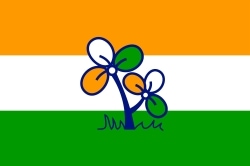
The All India Trinamool Congress (English: All India Grassroots Congress; abbr. AITC), colloquially the Trinamool Congress (abbr. TMC) is an Indian political party which is predominantly active in West Bengal. The party is led by Mamata Banerjee, the current Chief Minister of West Bengal, who has led the state since 2011. It is currently the third largest party in Parliament with 23 members in Lok Sabha and 13 members in Rajya Sabha and 230 MLAs in State legislative assemblies of India, just after BJP and INC. In 2016 the Election Commission recognised TMC as a national political party.
Read More About Trinamool Congress / Source
Indian National Congress
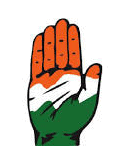
The Indian National Congress (INC), colloquially the Congress Party but often simply the Congress, is a political party in India with widespread roots. Founded in 1885, it was the first modern nationalist movement to emerge in the British Empire in Asia and Africa. From the late 19th century, and especially after 1920, under the leadership of Mahatma Gandhi, the Congress became the principal leader of the Indian independence movement. The Congress led India to independence from the United Kingdom, and significantly influenced other anti-colonial nationalist movements in the British Empire.Congress is one of the two major political parties in India, along with its main rival the Bharatiya Janata Party. It is a “big tent” party whose platform is generally considered to lie in the centre of Indian politics. After Indian independence in 1947, Congress emerged as a catch-all and secular party, dominating Indian politics for the next 20 years. The party’s first prime minister, Jawaharlal Nehru, led the Congress to support socialist policies by creating the Planning Commission, introducing Five-Year Plans, implementing a mixed economy, and establishing a secular state. After Nehru’s death and the short tenure of Lal Bahadur Shastri, Indira Gandhi became the leader of the party.
In 1969, the party suffered a major split, with a faction led by Indira Gandhi leaving to form the Congress (R), with the remainder becoming the Congress (O). The Congress (R) became the dominant faction, winning the 1971 general election with a huge margin. However, another split occurred in 1979, leading to the creation of the Congress (I), which was recognized as the Congress by the Electoral Commission in 1981. Under Rajiv Gandhi’s leadership, the party won a massive victory in the 1984 general elections, nevertheless losing the election held in 1989 to the National Front. The Congress then returned to power under P. V. Narasimha Rao, who moved the party towards an economically liberal agenda, a sharp break from previous leaders. However, it lost the 1996 general election and was replaced in government by the National Front (then the BJP). After a record eight years out of office, the Congress-led coalition known as the United Progressive Alliance (UPA) under Manmohan Singh formed a government post-winning 2004 general elections. Subsequently, the UPA again formed the government after winning the 2009 general elections, and Singh became the first Prime Minister since Nehru in 1962 to be re-elected after completing a full five-year term. However, in the 2014 general election, the Congress suffered a heavy defeat, winning only 48 seats of the 543-member Lok Sabha (the lower house of the Parliament of India). In the 2019 general election, the party again suffered a heavy defeat, winning only 52 seats in the Lok Sabha.
In the 17 general elections since independence, it has won an outright majority on seven occasions and has led the ruling coalition a further three times, heading the central government for more than 54 years. There have been six Prime Ministers from the Congress party, the first being Nehru (1947–1964), and the most recent Manmohan Singh (2004–2014).
On social issues, it advocates secular policies that encourage equal opportunity, right to health, right to education, civil liberty, and support mixed economy, and a strong welfare state. Being a centrist party, its policies predominantly reflected balanced positions including secularism, egalitarianism, and social stratification. The INC supports contemporary economic reforms such as liberalisation, privatisation and globalization. A total of 61 people have served as the president of the INC since its formation. Sonia Gandhi is the longest-serving president of the party, having held office for over twenty years from 1998 to 2017 and again from 2019 till 2022. Mallikarjun Kharge is the current serving President of the Indian National Congress. The district party is the smallest functional unit of Congress. There is also a Pradesh Congress Committee (PCC), present at the state level in every state. Together, the delegates from the districts and PCCs form the All India Congress Committee (AICC). The party is also organized into several committees and sections, such as the Congress Working Committee (CWC).
Read More About Indian National Congress / Source
Bharatiya Janata Party
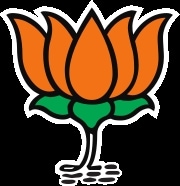
The Bharatiya Janata Party (BJP; [bʱaːɾət̪iːjə dʒənət̪aː paːrtiː] (listen); lit. ’Indian People’s Party’) is a political party in India, and one of the two major Indian political parties alongside the Indian National Congress. Since 2014, it has been the ruling political party in India under Narendra Modi, the incumbent Indian prime minister. The BJP is aligned with right-wing politics, and its policies have historically reflected a traditional Hindu nationalist ideology; it has close ideological and organisational links to the Rashtriya Swayamsevak Sangh (RSS). As of February 2022, it is the country’s largest political party in terms of representation in the Parliament of India as well as state legislatures.
The party’s origins lie in the Bharatiya Jana Sangh, which was founded in 1951 by Indian politician Shyama Prasad Mukherjee. After The Emergency of 1975–1977, the Jana Sangh merged with several other political parties to form the Janata Party; it defeated the then-incumbent Indian National Congress in the 1977 general election. After three years in power, the Janata Party dissolved in 1980, with the members of the erstwhile Jana Sangh reconvening to form the modern-day BJP. Although initially unsuccessful—winning only two seats in the 1984 general election—it grew in strength on the back of the movement around Ram Janmabhoomi in Uttar Pradesh. Following victories in several state elections and better performances in national elections, the BJP became the largest political party in the Parliament in 1996; however, it lacked a majority in the lower house of Parliament, and its government, under its then-leader Atal Bihari Vajpayee, lasted for only 13 days.After the 1998 general election, the BJP-led coalition known as the National Democratic Alliance (NDA) under prime minister Vajpayee formed a government that lasted for a year. Following fresh elections, the NDA government—again headed by Vajpayee—lasted for a full term in office; this was the first non-Congress government to do so. In the 2004 general election, the NDA suffered an unexpected defeat, and for the next ten years, the BJP was the principal opposition party. However, Narendra Modi, who was then serving as the chief minister of Gujarat, led it to a landslide victory in the 2014 general election. Since that general election, Modi has led the NDA government as Indian prime minister and, as of December 2022, the alliance governs 16 States and union territories of India.
The official ideology of the BJP is integral humanism, which was first formulated by Indian politician Deendayal Upadhyaya in 1965. The party advocates social conservatism and a foreign policy centred on nationalist principles. Since its assumption of power in 2014, its key-focus issues have included Article 370 of the Constitution of India, which conferred a special autonomous status to Jammu and Kashmir; the building of the Ram Mandir in Ayodhya, Uttar Pradesh; and the implementation of the proposed Uniform Civil Code. Conversely, the 1998–2004 NDA government did not pursue any of these controversial issues, focusing instead on a largely liberal economic policy that prioritised globalisation and economic growth over social welfare. Two of these policies have been implemented since 2014. On 5 August 2019, the newly re-elected BJP government revoked the special status of Jammu and Kashmir, and on 9 November 2019, the Supreme Court of India passed the final verdict on the case of the Ayodhya dispute that handed over the land to a trust organization to build the Ram Mandir, a major Hindu temple. The V-Dem Institute described India in a report as experiencing nationwide democratic backsliding under post-2014 BJP rule.
Read More About Bharatiya Janata Party / Source
Nationalist Congress Party
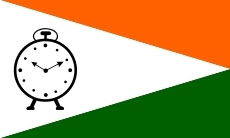
The Nationalist Congress Party (abbr. NCP) is one of the national parties in India. The party generally supports Indian nationalism and Gandhian secularism. It is the largest opposition party in Maharashtra and is also a significant party in other states.
Read More About Nationalist Congress Party / Source
All India Majlis-e-Ittehadul Muslimeen
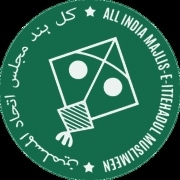
The All India Majlis-E-Ittehadul Muslimeen (English: All India Council for Unity of Muslims) (abbreviation: AIMIM) is an Indian political party based primarily in the old city of Hyderabad. It is also a significant political party in the Indian States of Telangana and Maharashtra. It is the second largest party in Telangana Legislative Assembly and in Telangana Legislative Council. Its aim is to promote the social, economical, and educational development and effective representation of Indian Muslims and Dalits.AIMIM has held the Lok Sabha seat for the Hyderabad constituency since 1984. In the 2014 Telangana Legislative Assembly elections, the party won seven seats and received recognition as a ‘state party’ by the Election Commission of India.For much of its existence, it had little presence beyond old Hyderabad. However, in more recent years, it has begun expanding into other states. It now has a significant presence in Maharashtra, with Imtiyaz Jaleel winning the Aurangabad constituency and with multiple members elected to the Legislative Assembly. It has also made inroads in Bihar, winning five Legislative Assembly seats in 2020.
Read More About All India Majlis-e-Ittehadul Muslimeen / Source
Bahujan Samaj Party
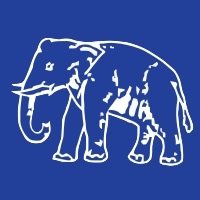
The Bahujan Samaj Party (BSP) is a national level political party in India that was formed to represent Bahujans (literally means “community in majority”), referring to Scheduled Castes, Scheduled Tribes, and Other Backward Classes (OBC), along with religious minorities. According to Kanshi Ram, when he founded the party in 1984, the Bahujans comprised 85 percent of India’s population, but were divided into 6,000 different castes. The party claims to be inspired by the philosophy of Gautama Buddha, B. R. Ambedkar, Mahatma Jyotiba Phule, Narayana Guru, Periyar E. V. Ramasamy and Chhatrapati Shahuji Maharaj.Kanshi Ram named his protégée, Mayawati, as his successor in 2001. The BSP has its main base in the Indian state of Uttar Pradesh where it was the second-largest party in the 2019 Indian general election with 19.3% of votes and third-largest in the 2022 Uttar Pradesh Legislative Assembly election with 12.88% of votes. Its election symbol is an elephant which is the same symbol historically used by Dr. Ambedkar’s Scheduled Castes Federation.
Read More About Bahujan Samaj Party / Source
Communist Party of India
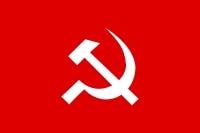
The Communist Party of India (CPI) is the oldest Marxist–Leninist communist party in India and one of the nine national parties in the country. The CPI was founded in modern-day Kanpur (formerly known as Cawnpore) on 26 December 1925.
Read More About Communist Party of India / Source
Communist Party of India (Marxist)
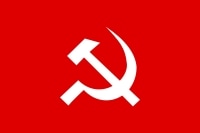
The Communist Party of India (Marxist) (abbreviated as CPI(M)/CPIM/CPM) is a Marxist–Leninist communist political party in India. It is the largest communist party of India in terms of membership and electoral seats and one of the national parties of India. The party emerged from a split in the Communist Party of India (CPI) on 7 November 1964. As of 2022, CPI(M) is a part of ruling alliances in three states — the Left Democratic Front in Kerala, Mahagathbandhan in Bihar, and the Secular Progressive Alliance in Tamil Nadu. CPIM has representation in the legislative assemblies of 8 states.
The All-India Party Congress is the supreme authority of the Communist Party of India (Marxist). However, during the time between two party congresses, the Central Committee is the highest decision-making body. The Central Committee shall elect from among its members a Polit Bureau including the General Secretary. The Polit Bureau carries on the work of the Central Committee between its two sessions and has the right to take political and organisational decisions in between two meetings of the Central Committee.
Read More About Communist Party of India (Marxist) / Source
National People's Party
The National People’s Party is a national-level political party in India, though its influence is mostly concentrated in the state of Meghalaya. The party was founded by P. A. Sangma after his expulsion from the NCP in July 2012. It was accorded national party status on 7 June 2019. It is the first political party from Northeastern India to have attained this status.
Read More About National People's Party / Source
Aam Aadmi Party
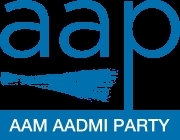
The Aam Aadmi Party (transl. Common Man’s Party; abbr. AAP) is a political party in India. AAP was founded in November 2012 by Arvind Kejriwal and his then-companions, following the 2011 Indian anti-corruption movement. AAP is currently the ruling party of two states: The N.C.T of Delhi , and the state of Punjab. The party’s election symbol is a broom.The party came into existence following a rift between Kejriwal and Indian activist Anna Hazare regarding the incorporation of electoral politics into the popular 2011 Indian anti-corruption movement, which had been demanding a Jan Lokpal Bill since 2011. Hazare preferred the movement should remain politically unaligned, whereas Kejriwal felt the failure of the agitation route necessitated changes in government’s representation itself. Janlokpal was established in Delhi and in Punjab as soon as AAP formed the respective governments with full majority.Making its electoral debut in the 2013 Delhi Legislative Assembly election, the AAP emerged as second largest party after the BJP; neither of the parties had an absolute majority. Consequently, the AAP formed the government with support from INC members of assembly. Kejriwal became the Chief Minister of Delhi, but his government resigned in 49 days after he could not pass the Jan Lokpal Bill in the assembly, because of the lack of support from the INC. After President’s rule in Delhi, in the following 2015 elections, the AAP won 67 of the 70 seats in the assembly, leaving the BJP with just 3 seats and INC with none; and Kejriwal was sworn in as the Chief Minister of Delhi. The AAP lost all seven parliamentary constituencies in Delhi in the 2019 national election. However, the AAP defeated the BJP in the subsequent 2020 Delhi Legislative Assembly election, winning 62 seats.The AAP cemented its popularity outside Delhi, when it emerged as the second largest party in the 2017 Punjab Legislative Assembly election, securing 20 seats. It went on to win a majority 92 seats in the 2022 Punjab Legislative Assembly election, following which its member Bhagwant Mann was sworn in as the Chief Minister of Punjab. The party has expanded its influence to Chandigarh, Goa and Gujarat, qualifying as a national party.
Read More About Aam Aadmi Party / Source
Janata Dal (Secular)
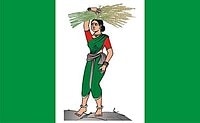
The Janata Dal (Secular) is an Indian political party led by former prime minister of India, H. D. Deve Gowda. The party is recognized as a State Party in the states of Karnataka, Kerala and Arunachal Pradesh. It was formed in July 1999 by the split of Janata Dal party. It has a political presence mainly in Karnataka. In Kerala, the party is a part of the Left Democratic Front (LDF).
Read More About Janata Dal (Secular) / Source
Janata Dal (United)
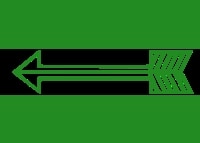
Janata Dal (United) (“People’s Party (United)”) abbreviated as JD(U) is an Indian political party with political presence mainly in eastern and north-eastern India. JD(U) is recognised as a state party in the states of Bihar , Arunachal Pradesh and Manipur and is a part of government in Bihar. JD(U) heads the government in Bihar and has remained the second largest party in Manipur. JD(U) won 16 seats in the 2019 Indian general election, making it the seventh largest party in the Lok Sabha.
The Janata Dal (United) was formed with the merger of the Sharad Yadav faction of the Janata Dal, the Lok Shakti Party and the Samata Party on 30 October 2003. But Election Commission of India refused the merger of the Samata Party, then Brahmanand Mandal became the president, but he was suffering from Alzheimer’s disease and not physically well so Uday Mandal became President and he has taken charge of the Samata Party. Janata Dal (United)’s party mentor and patron is the veteran socialist leader George Fernandes. JD(U) has been a part of the BJP-led National Democratic Alliance (NDA) since its formation except from June 2013 to August 2017 and from August 2022 to present.
Read More About Janata Dal (United) / Source
All India Anna Dravida Munnetra Kazhagam
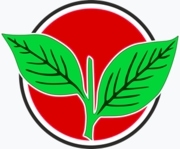
The All India Anna Dravida Munnetra Kazhagam (transl. All India Anna Dravidian Progressive Federation; abbr. AIADMK) is an Indian regional political party with great influence in the state of Tamil Nadu and the union territory of Puducherry. It is a Dravidian party founded by the former chief minister of Tamil Nadu M. G. Ramachandran (M.G.R.) at Madurai on 17 October 1972 as a breakaway faction from the Dravida Munnetra Kazhagam after M. Karunanidhi expelled him from the party for demanding an account as the party treasurer. The party is adhering to the policy of socialism and secularism based on the principles of C. N. Annadurai (Anna) collectively coined as Annaism by M.G.R. The party has won a seven-time majority in the Tamil Nadu Legislative Assembly and has emerged as the most successful political outfit in the state’s history. It is currently the main opposition party in the Tamil Nadu Legislative Assembly and part of the India-ruling National Democratic Alliance.From 9 February 1989 to 5 December 2016, the AIADMK was led by the former chief minister of Tamil Nadu J. Jayalalithaa (Amma) as general secretary of the party. She was admired as the Mother of the party by her cadre and was highly popular among the Tamil populace until her death in 2016. From 21 August 2017 to 23 June 2022, the party was led under the dual leadership of the former chief ministers of Tamil Nadu O. Panneerselvam and Edappadi K. Palaniswami as coordinator and joint coordinator respectively.From 11 July 2022, the AIADMK is led by the former chief minister of Tamil Nadu Edappadi K. Palaniswami (E.P.S.) as general secretary of the party.The headquarters of the party is called Puratchi Thalaivar M.G.R. Maaligai, which is located at Avvai Shanmugam Salai, Royapettah, Chennai. The building was donated to the party in 1986 by M.G.R.’s wife V. N. Janaki Ramachandran, former chief minister of Tamil Nadu.
Read More About All India Anna Dravida Munnetra Kazhagam / Source
Dravida Munnetra Kazhagam
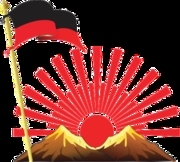
The Dravida Munnetra Kazhagam (transl. Dravidian Progressive Federation; abbr. DMK) is a political party based in the state of Tamil Nadu where it is currently the ruling party having a comfortable majority without coalition support and the union territory of Puducherry where it is currently the main opposition.It is also one of the two main political parties in Tamil Nadu, along with the rival All India Anna Dravida Munnetra Kazhagam. Since the 2021 state election, it has been the ruling party of Tamil Nadu.
The DMK was founded on 17 September 1949 by the former chief minister of Tamil Nadu C. N. Annadurai (Anna) as a breakaway faction from the Dravidar Kazhagam headed by E. V. Ramasami (Periyar). DMK was headed by Annadurai as the general secretary from 1949 until his death on 4 February 1969. He also served as the chief minister of Tamil Nadu from 1967 to 1969. Under Annadurai, in 1967, DMK became the first party, other than the Indian National Congress, to win the state-level elections with a clear majority on its own in any state in India. M. Karunanidhi (Kalaignar) followed Annadurai as the first president of the party from 1969 until his death on 7 August 2018. He also served as the Chief Minister for five non-consecutive terms, in two of which he was dismissed by the central government. After Karunanidhi’s death, his son and former deputy, M. K. Stalin (Thalapathy), succeeded as the party president.At the federal level, the DMK is part of the United Progressive Alliance and is the third-largest party in the Lok Sabha. It currently holds 125 seats in the Tamil Nadu Legislative Assembly, and the DMK-led Secular Progressive Alliance holds 159.
Read More About Dravida Munnetra Kazhagam / Source
Naga People's Front
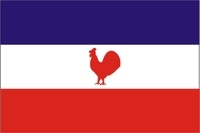
The Naga People’s Front (NPF) is a regional political party in Nagaland, Manipur and Arunachal Pradesh . It headed the Nagaland government with the Bharatiya Janata Party, as part of the Democratic Alliance of Nagaland from 2003 to 2018. NPF is coalition partner of N. Biren Singh ministry led BJP government in Manipur.
Dr. Shürhozelie Liezietsu is the President of the party. Awangbow Newmai is State unit President of the party in Manipur while Losii Dikho is the Legislature Party Leader of NPF in Manipur Legislative Assembly. Neiphiu Rio, the Lok Sabha member from the lone constituency of Nagaland was the leader of the party till 16 January 2018. T. R. Zeliang became the party leader till April 29, 2022. The current party leader is Kuzholuzo Nienu.
On 22 March 2004, the NPF absorbed the Nagaland Democratic Party.
Read More About Naga People's Front / Source
Rashtriya Janata Dal
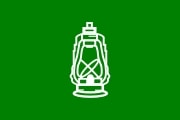
The Rashtriya Janata Dal (abbreviated as RJD; translation: National People’s Party) is an Indian political party, based in the states of Bihar, Jharkhand and Kerala. The party was founded in 1997 by Lalu Prasad Yadav.The party’s support base has traditionally been Other Backward Classes, Dalits and Muslims and it is considered a political champion of the lower castes. In 2008, RJD received the status of recognized national level party following its performance in north-eastern states. RJD was derecognised as a national party on 30 July 2010. Leading the Mahagathbandhan government with over 165 MLAs, it is currently the single largest political party in Bihar and currently the ruling party in Bihar, with the party’s youth leader Tejashwi Yadav as Deputy Chief Minister. RJD is also part of Ruling Government in Jharkhand and Kerala with its allies Mahagathbandhan (Jharkhand) and Left Democratic Front.
Read More About Rashtriya Janata Dal / Source
Revolutionary Socialist Party
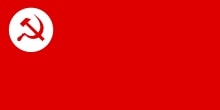
Revolutionary Socialist Party (RSP) is a communist party in India. The party was founded on 19 March 1940 by Tridib Chaudhuri and has its roots in the Bengali liberation movement Anushilan Samiti and the Hindustan Socialist Republican Army.The party got around 0.4% of the votes and three seats in the Lok Sabha elections in 1999 and 2004. It is part of the Left Front (West Bengal), Left Front (Tripura) and Congress-led United Democratic Front (Kerala).
Read More About Revolutionary Socialist Party / Source
Telugu Desam Party
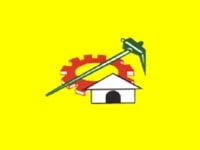
The Telugu Desam Party (transl. Telugu Country Party; abbr. TDP) is an Indian regional political party with great influence in the states of Andhra Pradesh and Telangana. It was founded by the former chief minister of Andhra Pradesh N. T. Rama Rao (N.T.R.) on 29 March 1982 and has focused on supporting Telugu speakers. The party has won a five-time majority in the Andhra Pradesh Legislative Assembly and has emerged as the most successful political outfit in the state’s history. It is currently the main opposition party in the Andhra Pradesh Legislative Assembly.From 1 September 1995, the TDP was led by N.T.R.’s son-in-law and the former chief minister of Andhra Pradesh N. Chandrababu Naidu as president of the party. The headquarters of the party is called N.T.R. Bhavan, which is located at Mangalagiri, Guntur.
Read More About Telugu Desam Party / Source
All India Forward Bloc
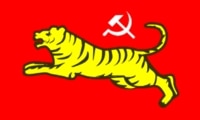
The All India Forward Bloc (abbr. AIFB) is a left-wing nationalist political party in India. It emerged as a faction within the Indian National Congress in 1939, led by Subhas Chandra Bose. The party re-established as an independent political party after the independence of India. It has its main stronghold in West Bengal. The party’s current Secretary-General is Debabrata Biswas. Veteran Indian politicians Sarat Chandra Bose (brother of Subhas Chandra Bose) and Chitta Basu had been the stalwarts of the party in independent India.
Read More About All India Forward Bloc / Source
All India N.R. Congress

All India N.R. Congress (abbr. AINRC) is a regional political party formed by the Chief Minister of Puducherry, N. Rangaswamy in the Indian union territory of Puducherry. He announced the party formation on 7 February 2011 in the party’s head office in Pondicherry as a breakaway from the Indian National Congress. Currently it is part of the National Democratic Alliance led by the BJP currently the ruling party of India.
The official website states expansion of “N.R.” in the party’s name as Namathu Rajiyam (meaning our kingdom). These letters are also the initials of the party founder N. Rangasamy. The party’s official motto is Simplicity, Fairness and Transparency.
Read More About All India N.R. Congress / Source
All India United Democratic Front
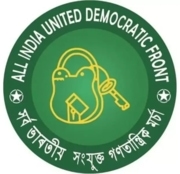
The All India United Democratic Front (also known as AIUDF and Sarva Bharatiya Sanyukt Ganatantric Morcha) is a political party active in the Indian state of Assam. It is the 3rd largest political party in Assam Legislative Assembly after BJP and INC.
The party was founded by Maulana Badruddin Ajmal on 3 October 2005 and at that time, its name was Assam United Democratic Front (AUDF). It was relaunched as a national party under its current name at a press meet in New Delhi on 2 February 2009, again with the Badruddin Ajmal as the party’s leader. The party is headquartered in Guwahati.The AIUDF is a key opposition party in Assam, which is the voice of millions of Bengali Muslims from Lower Assam and Barak Valley. It won 18 of 126 seats in the 2011 Legislative Assembly election and in 2016 it won 13 of 126 seats.
In 2021 Assam Assembly Election, Congress and AIUDF formed grand alliance along with BPF and communist parties. The alliance fought against BJP led NDA. AIUDF increase its tally and win 16 of 126 seats in the 2021 Legislative assembly election of Assam. However its alliance Mahajhot couldn’t get majority enough to form government.
Read More About All India United Democratic Front / Source
All Jharkhand Students Union

All Jharkhand Students Union or AJSU PARTY is a state political party of Jharkhand state, India. AJSU PARTY was founded on June 22, 1986, modelled after All Assam Students Union. The founders of AJSU were disillusioned with the previous political parties of Jharkhand and wanted more militant agitations.
AJSU organized general strikes and a campaign to boycott the Lok Sabha elections in 1989. By 1990 however, AJSU had taken a more pragmatic line and had candidates for the Bihar state assembly election on the Jharkhand Mukti Morcha symbol. Today, AJSU contests elections under its own name.
In the 2004 Lok Sabha elections AJSU was allied with the Bharatiya Janata Party. Ahead of the Jharkhand Legislative Assembly election, 2005, AJSU broke with the BJP-led NDA and formed an alliance with Lok Janshakti Party.
Ahead of the 2014 Jharkhand Legislative Assembly election, AJSU again allied with the BJP-led NDA. As results announced, AJSU won 5 seats while BJP won 37 seats in the state assembly securing the majority. AJSU party president Sudesh Mahto lost from his constituency Silli after representing it for nearly 15 years.
Read More About All Jharkhand Students Union / Source
Apna Dal (Sonelal)

Apna Dal (Sonelal) is an Indian political party active in the Uttar Pradesh. The party finds its support base mainly in the Kurmi community in the region of Varanasi, Uttar Pradesh.
Read More About Apna Dal (Sonelal) / Source
Asom Gana Parishad

Asom Gana Parishad (translation: Assam People’s Council, abbr. AGP) is a state political party in Assam, India. The AGP was formed after the historic Assam Accord of 1985 and formally launched at the Golaghat Convention held from 13–14 October 1985 in Golaghat, that let Prafulla Kumar Mahanta to be elected as the youngest chief minister of the state. The AGP has formed government twice from 1985 to 1989 and from 1996 to 2001.
The party split in 2005, with former Chief Minister Prafulla Kumar Mahanta forming the Asom Gana Parishad (Progressive), but regrouped on 14 October 2008 in Golaghat.The party won 14 seats out of 126 in the 2016 Legislative Assembly Elections; a historic win for the party. Further, it shares power with the Bodoland People’s Front and Bharatiya Janata Party.
Currently it is a part of North-East Regional Political Front consisting of political parties of the northeast which has supported the National Democratic Alliance (India). The party will form an alliance with BJP in coming assembly elections as well.
Read More About Asom Gana Parishad / Source
Bharat Rashtra Samithi
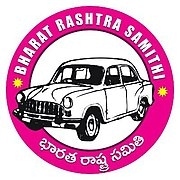
Bharat Rashtra Samithi (transl. India Nation Council ; abbr. BRS), formerly known as Telangana Rashtra Samithi (abbr. TRS), is an Indian political party which is predominantly active in the state of Telangana. It was founded on 27 April 2001 as by K. Chandrashekar Rao, with a single-point agenda of creating a separate Telangana state with Hyderabad as its capital. It has been instrumental in carrying forth a sustained agitation for the granting of statehood to Telangana.In the 2014 Telangana Assembly Election, the party won a majority of seats and formed the first government of the State with K. Chandrashekar Rao as its chief minister. In the 2014 general election the party won 11 seats, making it the eighth largest party in Lok Sabha, the lower house of the Indian Parliament.
After a landslide victory in 2018 Telangana Legislative Assembly election, the party formed the government in the State for the second time. In the 2019 Indian general election, the party’s tally has fallen to 9 seats in the Lok Sabha. As of September 2020, the party holds 7 seats in upper house of Rajya Sabha.The name of the party was changed from Telangana Rashtra Samithi to Bharat Rashtra Samithi on 5 October 2022.
Read More About Bharat Rashtra Samithi / Source
Biju Janata Dal

The Biju Janata Dal (transl. Biju People’s Party; abbr. BJD) is a regional political party in the Indian state of Odisha founded and led by Naveen Patnaik, the current Chief Minister of Odisha and the son of former Chief Minister of Odisha Biju Patnaik, after whom the party is named. It was founded on 26 December 1997.
Read More About Biju Janata Dal / Source
Bodoland People's Front
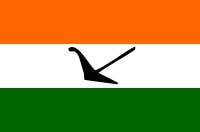
The Bodoland People’s Front (BPF) is a state political party in Assam, India. The party is headquartered in Kokrajhar Town and previously was in ruling government in the autonomous region of Bodoland. The party joined United Progressive Alliance after leaving National Democratic Alliance.
Read More About Bodoland People's Front / Source
Communist Party of India (Marxist–Leninist) Liberation
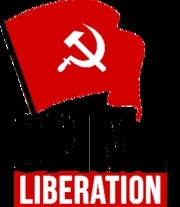
The Communist Party of India (Marxist–Leninist) Liberation (abbreviated: CPI(ML)L or CPI-ML(L) or CPIML Liberation) also referred to as the Liberation Group, is a Communist political party in India.
Read More About Communist Party of India (Marxist–Leninist) Liberation / Source
Desiya Murpokku Dravida Kazhagam
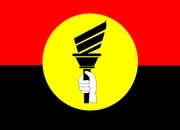
The Desiya Murpokku Dravida Kazhagam (transl. National Progressive Dravidian Federation; abbr. DMDK) is an Indian regional political party in the state of Tamil Nadu. It is a Dravidian party founded by the former leader of the opposition in the Tamil Nadu Legislative Assembly Vijayakant (Captain) at Madurai on 14 September 2005. The DMDK is led by its founder as president and general secretary of the party. The headquarters of the party is located at Jawaharlal Nehru Salai, Koyambedu, Chennai.
Read More About Desiya Murpokku Dravida Kazhagam / Source
Goa Forward Party
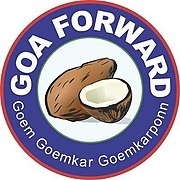
Goa Forward Party (abbr. GFP) is a regional political party in the western coastal Indian state of Goa, led by Vijai Sardesai. The GFP fielded four candidates in the 2017 Goa Assembly election and won three seats. It played a crucial, if controversial, role in the return of the Bharatiya Janata Party to power in the March 2017 election results in Goa. The party’s motto is “Goem, Goemkar, Goemkarponn” (Goa, Goans and Goan ethos). The party was launched on 25 January 2016 and its symbol is the coconut.
Read More About Goa Forward Party / Source
Hill State People's Democratic Party

The Hill State People’s Democratic Party (HSPDP) is a regional political party active in the state of Meghalaya, northeast India. Formed in 1968 as a split from the All Party Hill Leaders Conference by Hopingstone Lyngdoh, the HSPDP has had representatives in the Meghalaya Legislative Assembly since the Assembly’s first elections in 1972. The HSPDP has been a junior member of coalition governments in Meghalaya on a number of occasions and following the 2018 election joined the National People’s Party-led government of Chief Minister Conrad Sangma.
The HSPDP is part of the North-East Regional Political Front, which consists of the regional northeastern parties supporting the BJP-led National Democratic Alliance government.
Read More About Hill State People's Democratic Party / Source
Indian National Lok Dal
Indian National Lok Dal (INLD) is a political party in India, in the state of Haryana. INLD was founded in October 1996 as Haryana Lok Dal (Rashtriya) by Choudhary Devi Lal, who served as Deputy Prime Minister of India in the V.P. Singh’s Cabinet and Chief Minister of Haryana twice. His son Om Prakash Chautala is the President.
Former Leader of Opposition, Abhay Singh Chautala is Secretary General of INLD.
Read More About Indian National Lok Dal / Source
Indian Union Muslim League
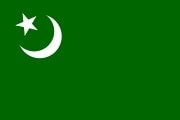
The Indian Union Muslim League (abbreviated as the I. U. M. L. or the League) is an Indian political party primarily based in the Indian state of Kerala. It is recognised as a State Party in Kerala by the Election Commission of India.The first Council of the Indian segment of the Muslim League was held on 10 March 1948 at the south Indian city of Madras (now Chennai). The ‘Indian Union Muslim League’ constitution was passed on 1 September 1951.The party is a major member of the opposition United Democratic Front, the Indian National Congress-led pre-poll state level alliance in Kerala. Whenever the United Democratic Front rules in Kerala, the party leaders are chosen as important Cabinet Ministers. The party has always had a constant, albeit small, presence in the Indian Parliament. The party is a part of the United Progressive Alliance in national level. The League first gained a ministry (Minister of State for External Affairs) in Indian Government in 2004.The party currently has four members in Parliament – E. T. Mohammed Basheer, M. P. Abdussamad Samadani and K. Navas Kani in the Lok Sabha and P. V. Abdul Wahab in the Rajya Sabha – and fifteen members in Kerala State Legislative Assembly.
Read More About Indian Union Muslim League / Source
Indigenous People's Front of Tripura
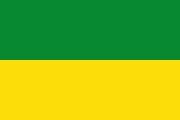
The Indigenous Peoples Front of Tripura (IPFT) is a regional political party in Tripura, India. It is a member of the National Democratic Alliance and North-East Democratic Alliance. The party was merged into the Indigenous Nationalist Party of Tripura (INPT) in 2001, However diverged out in 2009. The party is allied with BJP in the 2018 Tripura Legislative Assembly election and won 8 seats out of 9 contested seats. The party got 7.5% of the total votes polled. The BJP got 36 seats and with a total of 44 seats the BJP-IPFT coalition have two-thirds majority at the Legislative Assembly.
Read More About Indigenous People's Front of Tripura / Source
Jammu & Kashmir National Conference
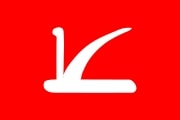
The Jammu & Kashmir National Conference (JKNC) is a regional political party in the Indian union territories of Jammu and Kashmir and Ladakh. Founded as the All Jammu and Kashmir Muslim Conference by Sheikh Abdullah and Chaudhry Ghulam Abbas in 1932 in the princely state of Jammu and Kashmir, the organisation renamed itself to “National Conference” in 1939 in order to represent all the people of the state. It supported the accession of the princely state to India in 1947. Prior to that, in 1941, a group led by Ghulam Abbas broke off from the National Conference and revived the old Muslim Conference. The revived Muslim Conference supported the accession of the princely state to Pakistan and led the movement for Azad Kashmir.Since 1947, the National Conference was in power in Jammu and Kashmir in one form or another till 2002, and again between 2009 and 2015. It implemented land reforms in the state, ensured the state’s autonomy under the Article 370 of the Indian Constitution, and formulated a separate Constitution of Jammu and Kashmir in 1957. Sheikh Abdullah’s son Farooq Abdullah (1981–2002, 2009–present) and grandson Omar Abdullah (2002–2009) have led the party after Sheikh Abdullah’s death. The party is a member of the People’s Alliance for Gupkar Declaration electoral alliance.
Read More About Jammu & Kashmir National Conference / Source
Jammu and Kashmir National Panthers Party

The Jammu & Kashmir National Panthers Party is a socialist and secular state political party in the state of Jammu and Kashmir, India. The party was founded on 23 March 1982 by Prof. Bhim Singh and a few prominent youth political personalities of the time including Jay Mala, former President of the Indian Students Congress. Its aim is to “demolish corruption, communalism, criminalization, drug menace” and to establish a real democracy through ultimate revolution. Panthers Party had campaigned for over three decades for the abolition of Article 370 and Article 35A, demanding that the special status of the State of Jammu and Kashmir be revoked, and for it to be fully assimilated into the Republic of India. These demands were finally met by a presidential order in August 2019 that revoked Jammu and Kashmir’s special status. Panthers Party campaigns for a further division of the Union Territory of Jammu and Kashmir, with the recognition of Hindu-majority Jammu Division as a new and separate state of India.In 2017, Ankit Love, the son of Bhim Singh and Jay Mala, announced his candidacy for Prime Minister of India for the 2019 Indian general election. He became the party’s leader on 28 May 2017. On 23 June 2021, Panthers Party President Prof. Bhim Singh was reported in the media as a potential candidate for the 2022 Indian vice presidential election, as recommended for nomination by Ankit Love, just prior to meeting Prime Minister Modi at his residence for special dialogue in regards to the insurgency in Jammu and Kashmir. In 1996 the party was notable in moving the Supreme Court and the Election Commission to return the democratic process to militancy-torn Jammu and Kashmir, when elections were held again in the state after a nine years hiatus.The party formed part of the coalition government of Jammu & Kashmir along with the Congress and PDP after the 2002 Jammu & Kashmir elections, winning all seats in the Udhampur district, with Harsh Dev Singh serving as education minister in the cabinet, and Yash Paul Kundal as the minister of animal and sheep husbandry.The party is a strong proponent of secular values in Jammu & Kashmir and across the region plagued by the terrorist insurgency in Jammu and Kashmir. As a strong advocate of women’s rights the Panthers Party women’s wing works to protect women from domestic abuse in Jammu and Kashmir and female foeticide. The Women Panthers have called for a 33% reservation of seats for women in the Jammu and Kashmir Legislative Assembly.Prof. Bhim Singh who is locally known as Sher-e-Jammu (Lion of Jammu) is the party’s Chief Patron and served as the Panthers Party chairman for 30 years till 2012, when his nephew Harsh Dev Singh became Chairman. Balwant Singh Mankotia has served as party’s state President since 2010.The Panthers Party has been a long-time advocate of a sovereign statehood for Palestine. It strongly condemned Israel in reaction to the 2010 Gaza flotilla raid that left nine humanitarian aid workers dead, and called on the Indian central government to support Palestinians inside and outside the UN. In 2014, Panthers Party activists burned an effigy of Israeli prime minister Benjamin Netanyahu at protests held in New Delhi, calling for UN intervention under Chapter VII, and terming Israel’s actions in Gaza as “genocide.”By December 2015, the Panthers Party’s membership drive had reached a target of 100,000 members.Panthers Party, has fielded candidates in other Indian states, including Delhi in 2015, Uttarakhand in 2012, and in 2007 contested all MLA seats in Himachal Pradesh. In 2017, Panthers Party contested elections in Punjab, and Uttar Pradesh, and reconstituted its branch in Rajasthan, headed by Ashok Bapna. Panthers Party branch in the south Indian state of Tamil Nadu, is led by state president Naresh Ambedkar.In 2017, Qatar’s state-funded Al Jazeera, and Turkey’s state-run Anadolu Agency, labelled the Panthers Party as a right-wing Hindu nationalist political party, for its billboard poster campaign, calling for an expulsion of Burmese Rohingya Muslim refugees from Jammu.
Read More About Jammu and Kashmir National Panthers Party / Source
Jammu and Kashmir Peoples Democratic Party

The Jammu and Kashmir Peoples Democratic Party (PDP) is a state political party in Jammu and Kashmir, India. The PDP was headed and founded by Mufti Mohammed Sayeed. His daughter, Mehbooba Mufti, succeeded him as party leader and as Chief Minister of Jammu and Kashmir following his death in January 2016. The party is a member of the People’s Alliance for Gupkar Declaration electoral alliance.
Read More About Jammu and Kashmir Peoples Democratic Party / Source
Janta Congress Chhattisgarh
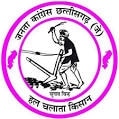
Janta Congress Chhattisgarh (or Chhattisgarh Janata Congress) is a political party in the Indian state of Chhattisgarh. The party was founded by former Chief Minister, Ajit Jogi, after Jogi and his son Amit were expelled from Indian National Congress due to anti-party activities as well as sabotaging a bypoll election in Antagarh. Amit Jogi was expelled for six years.Ajit Jogi launched the party in Thathapur village of Kawardha district and directly challenged Chief Minister of Chhattisgarh Raman Singh.
Read More About Janta Congress Chhattisgarh / Source
Jannayak Janta Party
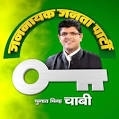
The Jannayak Janta Party, abbreviated as, JJP is an Indian state-level political party in Haryana, India. JJP is a recognized state political party. JJP was founded on 9 December 2018 by Dushyant Chautala with the ideology of Devi Lal, who served as Deputy Prime Minister of India. Based on the ideology of Jat solidarity and socialism, JJP is very strong and popular in some parts of Haryana.
Read More About Jannayak Janta Party / Source
Jharkhand Mukti Morcha

Jharkhand Mukti Morcha (lit. Jharkhand Liberation Front; abbr. JMM) is a State political party in the Indian state of Jharkhand which was founded by Binod Bihari Mahato. It has one seat in the 17th Lok Sabha. Shibu Soren is the president of the JMM. JMM is also an influential political party in the state of Odisha and parts of neighbouring of states. Its election symbol for Jharkhand is Bow and Arrow.The party was officially created on the birthday of Birsa Munda, the 19th century tribal warrior of Jharkhand, who fought against the British rule in present-day Jharkhand. The State of Jharkhand also came into existence on Birsa Munda’s birthday in 2000.
Read More About Jharkhand Mukti Morcha / Source
Kerala Congress (M)
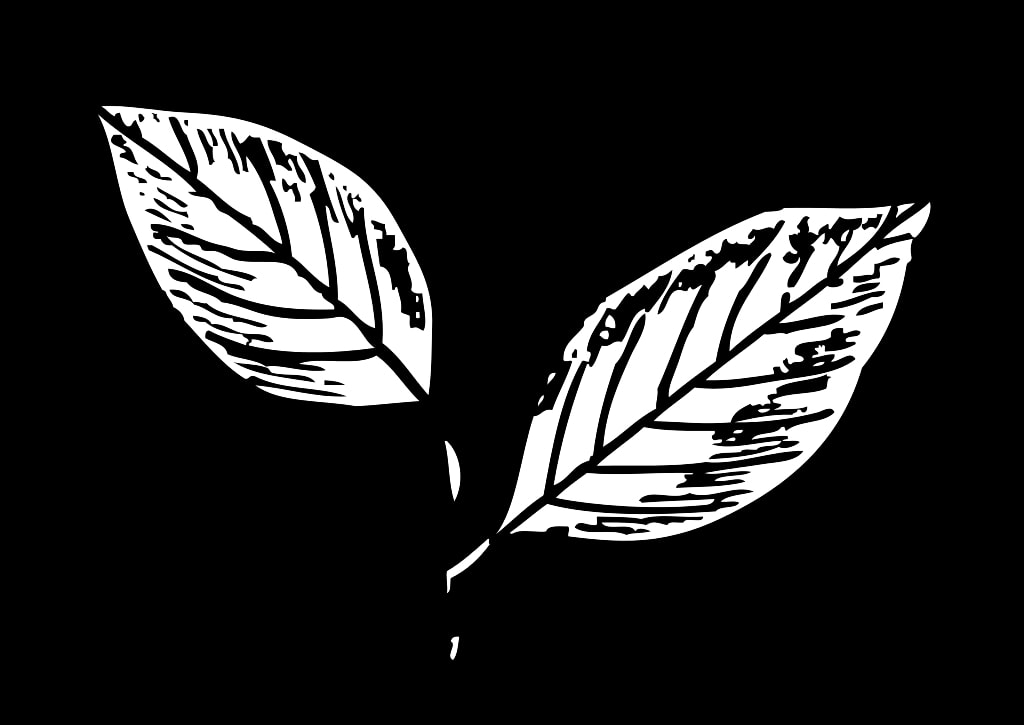
Kerala Congress (M) is a state-level political party in the Indian state of Kerala, currently led by chairman Jose K. Mani. It was formed by K. M. Mani in 1979, after a split from the Kerala Congress. They are part of the Left Democratic Front since October 2020.
Read More About Kerala Congress (M) / Source
Lok Janshakti Party
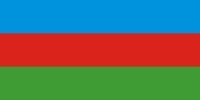
The Lok Janshakti Party (abbr. LJP, lit. “People’s Manpower Party”) was a state political party mainly based in the state of Bihar, India. The party was formed in 2000 when Ram Vilas Paswan split from Janata Dal. The party had a considerable following amongst Dalits in Bihar. The Party is factioned into two parties Lok Janshakti Party (Ram Vilas) and Rashtriya Lok Janshakti Party.
Read More About Lok Janshakti Party / Source
Maharashtra Navnirman Sena

The Maharashtra Navnirman Sena (translation: Maharashtra Reformation Army; abbr. MNS) is a Regionalist far-right Indian political party based in the state of Maharashtra and operates on the ideology of “Hindutva” and “Marathi” Manus. It was founded on 9 March 2006 in Mumbai by Raj Thackeray after he left the Shiv Sena party due to differences with his cousin Uddhav Thackeray, who was the 19th Chief Minister Of Maharashtra and to his sidelining by the Shiv Sena in major decisions like distribution of election tickets.
MNS won 13 assembly seats (out of 288) in the 2009 assembly elections, which was the first Maharashtra Legislative Assembly election that the party contested. In the most recent elections of Maharashtra Legislative Assembly 2019, MNS won only 1 seat.
In January 2020, MNS unveiled a new flag, however the symbol on the flag was not used for elections.
Read More About Maharashtra Navnirman Sena / Source
Maharashtrawadi Gomantak Party
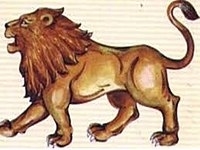
Maharashtrawadi Gomantak Party (abbr. MGP) was Goa’s first ruling party after the end of Portuguese rule in Goa in 1961. In the first elections held after the Annexation of Goa by India, it ascended to power in December 1963 and stayed in power till being ousted from power by defections in early 1979.
The party has its base amongst non-Brahmin Hindu migrants from Maharashtra and their descendants, a group that made up a large section of the poorer residents in Goa during Portuguese rule in Goa and whose numbers increased after 1961 by mass immigration from Maharashtra at the invitation of MGP politicians. However, the MGP proposal to merge Goa with Maharashtra was met with stiff opposition from the native Goans. Indira Gandhi, the then Prime Minister of India, then offered two options:
To retain Goa’s current status as a Union Territory
To merge Goa into the neighboring state of Maharashtra and the other erstwhile Portuguese enclaves of Daman and Diu into the neighbouring state of GujaratA law to conduct opinion poll to decide the issue of merger or otherwise of Goa, Daman and Diu with Maharashtra/Gujarat was passed by both the houses of the Indian Parliament, the Lok Sabha (on 1 December 1966), and the Rajya Sabha (on 7 December 1966 and the same received the assent of the President of India, Sarvepalli Radhakrishnan on 16 December 1966. An opinion poll was subsequently held on 16 January 1967 to decide the fate of the union territory which voted to retain its status as separate from Maharashtra by 34,021 votes.The continued mass immigration of Marathi people from Maharashtra to Goa helped the MGP to hold on to power for much of the first two decades of post-Portuguese Goa, despite being affected by some defections, by defeating the other contenders for power — primarily the United Goans Party (not to be confused with the United Goans Democratic Party founded in the 1990s) and the Indian National Congress.
During the first 18 years after the end of Portuguese rule, the MGP led the state government. However, the MGP today is marginalized when compared to its former status. The Bharatiya Janata Party, particularly during its reign between 1999 and 2005, took over most of the Hindu voters and also a large chunk of the MGP workers. Deepak Dhavalikar is the current president of the party and Pratap Fadte is the general secretary.
Read More About Maharashtrawadi Gomantak Party / Source
Mizo National Front

The Mizo National Front (abbr. MNF) is a regional political party in Mizoram, India. MNF emerged from the Mizo National Famine Front, which was formed by Pu Laldenga to protest against the inaction of the Indian central government towards the famine situation in the Mizo areas of the Assam state in 1959. It staged a major uprising in 1966, followed by years of underground activities. In 1986, it signed the Mizoram Accord with the Government of India, renouncing secession and violence. The MNF then began contesting elections and has formed state government in Mizoram three times. It is currently the state’s ruling party, with its president, Zoramthanga, as the Chief Minister of Mizoram.
Read More About Mizo National Front / Source
Mizoram People's Conference

The Mizoram People’s Conference was a regional political party in Mizoram, India. It was formed by Brig Thenphunga Sailo on 17 April 1975. Ṭhenphunga was the party chairman and Chief Minister of Mizoram from 1979 to 1984, and an army officer and then a human rights activist before starting his political party.
Following the MPC’s defeat in 1984, it was the main opposition party for the next two decades. In the 1998 assembly elections, it won 12 seats. However, in the 2003 elections, the party won only three seats, a number which fell to two in the 2008 elections and one in 2013. It ultimately won four seats in the 2018 election and their MLA quit to join ZPM. MPC was the third largest party in Mizoram for three decades. It merged with the People’s Representation for Identity and Status of Mizoram party as the People’s Conference Party.
Read More About Mizoram People's Conference / Source
Nationalist Democratic Progressive Party

The Nationalist Democratic Progressive Party (NDPP) is a regional political party in the Indian state of Nagaland. Chingwang Konyak is the president of NDPP. The symbol of the party is a globe.
The NDPP was formed by Naga People’s Front rebels who supported former Chief Minister of Nagaland Neiphiu Rio, and split to form the Democratic Progressive Party. In October 2017, the DPP changed its name to “Nationalist Democratic Progressive Party”.
In January 2018, former Chief Minister Neiphiu Rio joined the party after the Naga People’s Front broke its ties with the Bharatiya Janata Party for the 2018 Nagaland Legislative Assembly election. The NDPP then formed an alliance with the BJP for the election. Within the same month, 10 NPF MLAs quit the party and began negotiations with the NDPP.In the 2018 Nagaland Legislative Assembly election, the NDPP won 18 seats with 253,090 votes and 25.20% vote share. They then came to power in a coalition with the BJP, with Rio as chief minister.On April 29, 2022, 21 Naga People’s Front Nagaland MLAs joined the Nationalist Democratic Progressive Party increasing the number of NDPP MLAs to 42.
Read More About Nationalist Democratic Progressive Party / Source
Pattali Makkal Katchi
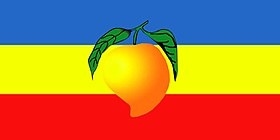
Paattali Makkal Katchi (transl. Working people’s party; abbreviated as PMK) is a political party in Tamil Nadu, India, founded by S. Ramadoss in 1989 for the Vanniyars, a caste in northern Tamil Nadu. It is currently part of the BJP led National Democratic Alliance (NDA). It contests the elections with the ‘Ripe Mango’ symbol.
The party is known for its occasional involvement in riots and vandalism. Former CM of Tamil Nadu, Jayalalitha likened the party to a terrorist organisation and threatened with ban for its frequent involvement in violence and vandalism of public property
Read More About Pattali Makkal Katchi / Source
People's Democratic Alliance
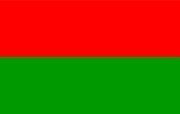
People’s Democratic Alliance is a political party in Manipur, India. The President and Leader of the party is Bd. Behring Anal. It is recognised as State Party in Manipur by the Election Commission of India.
Read More About People's Democratic Alliance / Source
People's Democratic Front
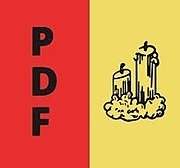
The People’s Democratic Front (PDF) is a regional political party in the Indian state of Meghalaya. The PDF was founded in 2017 and was led by P. N. Syiem and Auspicious L. Mawphlang.
Currently, it is part of the North-East Democratic Alliance. The PDP’s aim is to improve the development of the state especially of its tribal people living in it.
The two main tribes living in Meghalaya are the Khasi and the Garo: Khasi consist of sub-tribes including the Khynriam (mostly people from East and West Khasi Hills), Pnar from the Jaintia Hills, Bhoi from the Ri-Bhoi, and the War from the Southern part of the states, mostly along the borders.
In the 2018 Meghalaya Legislative Assembly election, the PDP won 128,413 votes (8.2% of the vote) and elected 4 MLAs.
Read More About People's Democratic Front / Source
People's Party of Arunachal
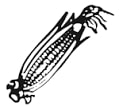
Peoples Party of Arunachal, a regional political party in the Indian state of Arunachal Pradesh. It was founded in September 1977 by Bakin Pertin, Oken Lego and L. Wanglat as president, Vice President and General Secretary of the party. Tomo Riba resigned from PK Thungon government Congress Party and joined PPA as Vice President of the Party. Currently, Kamen Ringu is the Chairman of the party. They were in power in Arunachal until all of their MLAs defected back to Indian National Congress.
On 16 September 2016, 43 MLAs from the ruling party, under the CM Pema Khandu, left Indian National Congress to join People’s Party of Arunachal party, in alliance with Bharatiya Janata Party.
Read More About People's Party of Arunachal / Source
Rashtriya Lok Dal
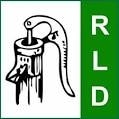
Rashtriya Lok Dal (abbreviated as RLD) (translation: National People’s Party) is a political party in India founded by Chaudhary Ajit Singh. He was carrying on the political legacy of his father and former Prime Minister of India, Chaudhary Charan Singh and the original Lok Dal. Chaudhary Ajit Singh was infected with COVID-19 and died during treatment at Medanta Hospital, Gurgaon.
Read More About Rashtriya Lok Dal / Source
Rashtriya Loktantrik Party

The Rashtriya Loktantrik Party (abbreviated as RLP) is an Indian political party in the state of Rajasthan. The party was founded by rebel Bharatiya Janata Party leader Hanuman Beniwal on the eve of the 2018 Rajasthan Legislative Assembly election.The party entered into an alliance with the Bharatiya Janata Party on the eve of the 2019 Indian general election. It has extended its support to the 2020 Bharat Bandh and the Indian farmers’ protest.
Read More About Rashtriya Loktantrik Party / Source
Samajwadi Party

The Samajwadi Party (abbr. SP; translation: Socialist Party, founded 4 October 1992) is a socialist political party in India, headquartered in New Delhi but mainly based in Uttar Pradesh, with significant presence in other states as well. With a secular and democratic ideology, the Samajwadi Party believes in creating a socialist society, which works on the principle of equality. The party has been able to form the government in the state of Uttar Pradesh for four times – three times under Chief Minister Mulayam Singh Yadav, the fourth and recent being Chief Minister Akhilesh Yadav’s full majority government in 2012-2017 Uttar Pradesh Legislative Assembly. The coalition of party and it’s alliance partners SP+ has one of the largest vote base in the state of Uttar Pradesh in terms of collective voting pattern in the state-based electoral system, with more than 37% vote share in 2022 elections.
Read More About Samajwadi Party / Source
Shiromani Akali Dal
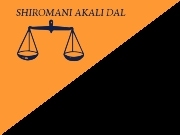
The Shiromani Akali Dal (SAD) (translation: Supreme Akali Party) is a centre-right sikh-centric state political party in Punjab, India. The party is the second-oldest in India, after Congress, being founded in 1920. Although there are many parties with the description Akali Dal, the party that is recognised as “Shiromani Akali Dal ( Badal ) Aka Badal Dal ” by the Election Commission of India is the one led by Sukhbir Singh Badal. The party has a moderate Punjabi agenda. On 26 September 2020, they left the NDA over the farm bills.There has been speculation over the Shiromani Akali Dal (SAD), Shiromani Akali Dal (Amritsar), Shiromani Akali Dal (Sanyukt), Sanyukt Samaj Morcha, Shiromani Akali Dal Delhi, Punjab Lok Congress, Lok Insaaf Party and Haryana State Akali Dal; which Rajdeep Singh called the ‘Shiromani Akali Dal (Lahore)’ and would contest in the next elections.
Read More About Shiromani Akali Dal / Source
Sikkim Democratic Front
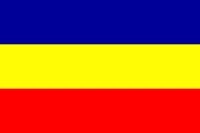
Sikkim Democratic Front (SDF) is a regional political party in the Indian state of Sikkim. It was the ruling party in Sikkim from 12 December 1994 to 23 May 2019.
Read More About Sikkim Democratic Front / Source
United Democratic Party
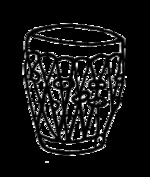
The United Democratic Party is a political party recognised in Meghalaya state, India. It is now led by Metbah Lyngdoh. It was started by E. K. Mawlong.
The Flag of the party shall be of three vertical colours with scarlet red colour at the extreme left nearest to the flag post, parrot green colour at the extreme right and white colour at the middle signifying respectively courage, valour and sacrifice (Scarlet Red), sincerity, honesty, integrity (White) and hope, hard work, survival (Green).
Read More About United Democratic Party / Source
United People's Party Liberal
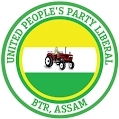
The United People’s Party Liberal (abbr. UPPL) is a political party founded in Assam. The party has its headquarters in Kokrajhar Town. The party was actively participated in 2020 Bodoland Territorial Council Election under the presidency of Pramod Boro. Earlier the party was led by former MP Urkhao Gwra Brahma.
Read More About United People's Party Liberal / Source
YSR Congress Party
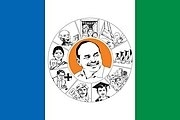
The Yuvajana Shramika Rythu Congress Party (YSRCP or YCP; transl. ’Youth, Labour, and Farmer Congress Party’) is an Indian regional political party based in the state of Andhra Pradesh. Its president Y. S. Jagan Mohan Reddy serves as the state’s chief minister. It is currently the fifth largest party in the Lok Sabha with 22 seats.
Read More About YSR Congress Party / Source
Zoram Nationalist Party

Zoram Nationalist Party is recognized as the state political party in Mizoram, India. The party known as formerly Mizo National Front (Nationalist). It is led by former MP Lalduhoma. MNF(N) was formed in 1997 through a split in the Mizo National Front.
The party won 2 seats in the state assembly in both the 2003 and 2008 state elections. The Zoram National Party has now been merged with Zoram people’s movement.
Read More About Zoram Nationalist Party / Source



